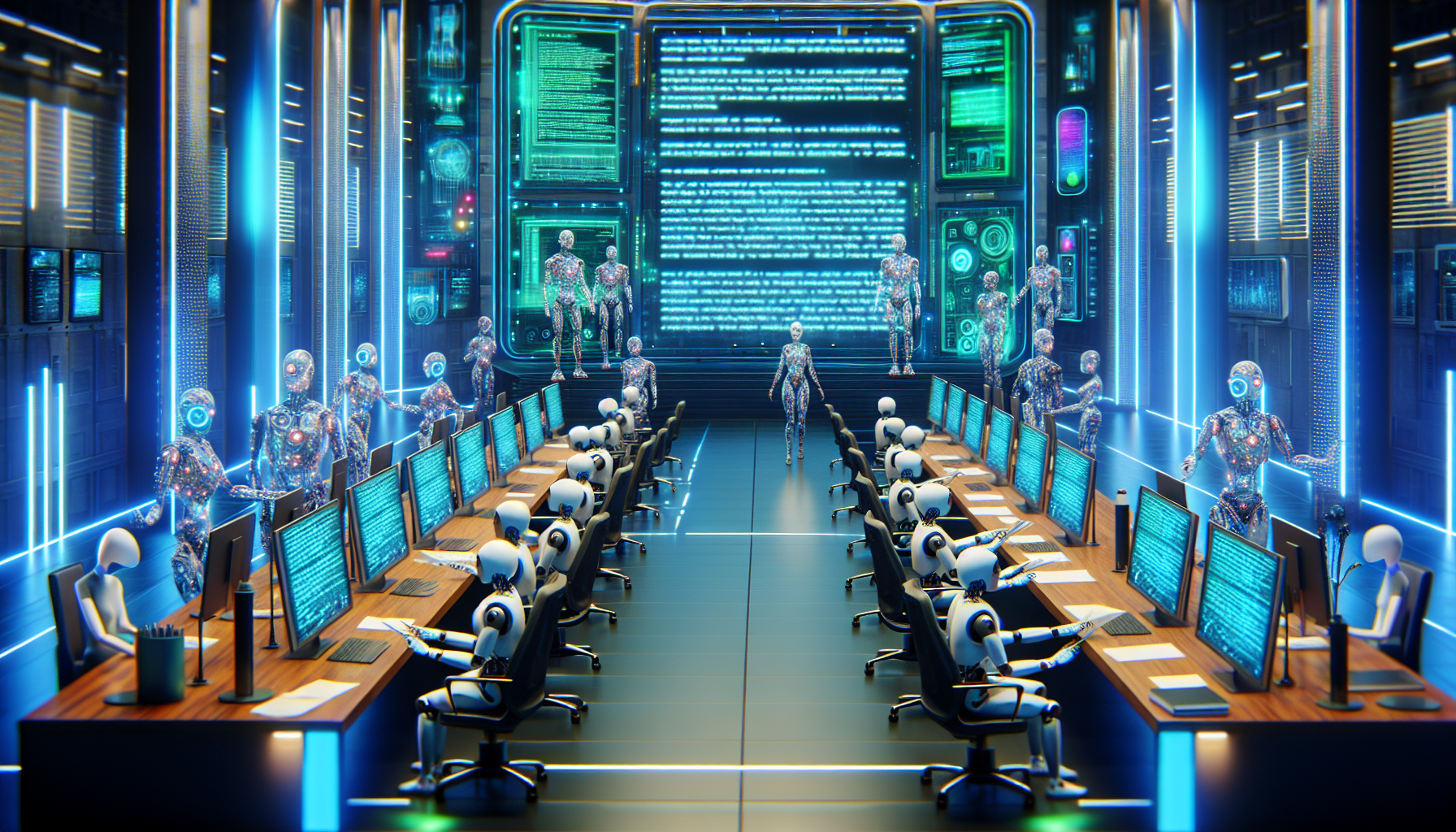
Welcome to the Future: AI and Television Screenwriting!
Imagine a world where the twists and cliffhangers in your favorite TV shows were conceived by a machine. Well, buckle up, buttercup, because Artificial Intelligence (AI) in television screenwriting is not just a pipe dream—it’s practically knocking on Hollywood’s golden doors. But what does this mean? Are we giving our beloved storylines over to the robots? Not exactly. Instead, it’s a bit like having R2-D2 as a writing partner—quirky, occasionally baffling, but potentially revolutionary.
The AI Scriptwriter: From Analysis to Creation
First things first, let’s talk about what AI in screenwriting is actually about. It isn’t so much about replacing the whiskey-swigging, typewriter-bashing screenwriter from the golden age of television. Rather, AI is used to churn through vast amounts of data—analyzing scripts, audience feedback, and even actor emotions—to output story elements that might appeal to viewers. But hold the phone, it doesn’t stop there. Some AI programs are dipping their metaphorical toes into the actual writing process, crafting dialogue and story arcs based on data-derived storytelling formulas.
Breaking It Down: AI’s Role
AI’s entrance into the writing room is kind of like a new health food trend—confusing at first, probably beneficial, but you’ll want to keep the comfort food (human writers) around too. These brainy algorithms can dissect an entire series to suggest optimal narrative arcs or predict a pilot episode’s success probability. But, can an AI understand the subtle art of a perfectly timed Michael Scott ‘That’s what she said’? Maybe not yet, but it’s getting there.
Examples and Experimentation: AI on the Tube
No, you didn’t misread, and no, Skynet hasn’t taken over… yet. AI has already been piloting its way through the writing rooms of some shows. Take the AI, Benjamin (yes, it has a name), which co-wrote a sci-fi screenplay called ‘Sunspring’ and the eerily named ‘Zone Out’—both of which can best be described as avant-garde (that’s the polite way to put it). While the dialogue might leave you scratching your head, the fact that it was conceived by algorithms is nothing short of fascinating.
The Real Genius: Augmentation Not Replacement
Before the writers among us start panic-crying into their Moleskines, let’s be clear: AI in screenwriting is less about replacement and more about augmentation. It’s here to take care of the computational heavy lifting—crunching numbers, spotting patterns, and sometimes, just sometimes, coming up with bizarre lines that can inspire human writers to think differently. Essentially, AI should be viewed as a zany sidekick in the storytelling journey.
Pros, Cons, and the Audience in Between
Every rose has its thorn, and AI in screenwriting is no different. The perks? Efficiency, novelty, and the immense potential to crunch data far beyond human capability. The drawbacks? A potential dip in the intricacies of storytelling that resonate on an emotional, deeply human level. After all, a script that clinches the human experience might need something more than algorithms—actual human experience.
Moreover, how will audiences react? Can viewers sniff out an AI-ennui? Will they toast to the rise of machine-made binge-worthiness or pine for the good old days of human error, serendipity, and soul? Only time—and TV ratings—will tell.
Dimming the Lights on AI Screenwriting?
So, what’s the endgame for AI in television screenwriting? Well, as long as the AI doesn’t start demanding its own star on the Hollywood Walk of Fame, the future seems collaborative. Imagine a room where human emotion and intuition shake hands with the unemotional, unyielding analytical prowess of AI. It’s like pairing wine with cheese, Gilbert with Sullivan, or better yet, peanut butter with jelly.
The integration of AI in television screenwriting signals a brave new world of endless possibilities—some fantastic, some a tad terrifying. But isn’t that the crunchy crux of all great TV drama?






